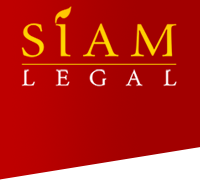What to do to Properly Close Your Business in Thailand?
Starting and operating a business in Thailand is challenging for a foreign national. The process of getting a business up and running in Thailand is difficult in itself. The company formation process, establishing utilities, and hiring of employees all require completing the forms at government offices. It is also difficult to hire in a tight labor market. Even after the business is up and running, the conflicts of culture can lead to disagreements with employees and customers. This is in addition to enforcing contracts and dealing with bureaucracy in a foreign language.
The beginnings of high hopes of successful business operation will generally lead to the realization that the business can no longer be sustained. Unless a new buyer for the business is found, the business will have to begin the long process of closing down. The process of properly closing down a business operation is long and filled with potential legal potholes. The following is a list of the steps required to properly shut down the business operation.
- File for dissolution with Department of Business Development and begin the process of legally shutting down the company.
- If the company is solvent, the company must liquidate its assets.
- If the company is insolvent, the shareholders can put additional capital into the company or the liquidator must start bankruptcy proceedings. The company’s debts need to be legally cleared before it is closed.
- The Company must file its tax return and pay all taxes due. Bankruptcy will not discharge tax debt.
- Employees should be paid their salary and any severance that is due to them.
- If there are any foreign employees, the work permits need to be returned to the Ministry of labor within seven days of employment.
- Suppliers and customers need to be legally notified of the termination of business operations. Arrangements should be made to terminate any existing contracts for services.
- Banks and financial accounts should be closed down and settled.
- The landlord of the business should be sent notice of the end of business operations and the lease should be properly terminated.
- If the taxes and debts are paid, any surplus is paid out to the shareholders.
Closing down a business is a sad time for the business proprietors but it is necessary to ensure the business is closed down properly. Any outstanding debts or unresolved contracts could lead to lawsuits against the directors and owners of the business. Please contact our corporate lawyers to ensure that the business closed down is properly completed to reduce the potential of continued liability or future lawsuits.
What we can do for you?
We provide the following assistance:
- Review strategy to close business at minimal financial cost
- Prepare and draft meeting minutes for dissolving the business
- Negotiate lawful settlements with staff within the Labor Law
- Negotiate with landlord with payment plan for early exit from lease
- Draft agreements with suppliers if required
- Prepare Audit Report for Thai company closing with DBD
- Close VAT and tax accounts with Thai government agencies
- Provide legal help with insolvency/bankruptcy issues and court supervised restructuring due to insolvency
If you have questions or in need of assistance in properly closing down your company, please contact us.

Category: Business in Thailand, Company Law
About the Author (Author Profile)
Siam Legal is an international law firm with experienced lawyers, attorneys, and solicitors both in Thailand law and international law. This Thailand law firm offers comprehensive legal services in Thailand to both local and foreign clients for Litigation such as civil & criminal cases, labor disputes, commercial cases, divorce, adoption, extradition, fraud, and drug cases. Other legal expertise of the law firm varied in cases involving corporate law such as company registration & Thailand BOI, family law, property law, and private investigation.











